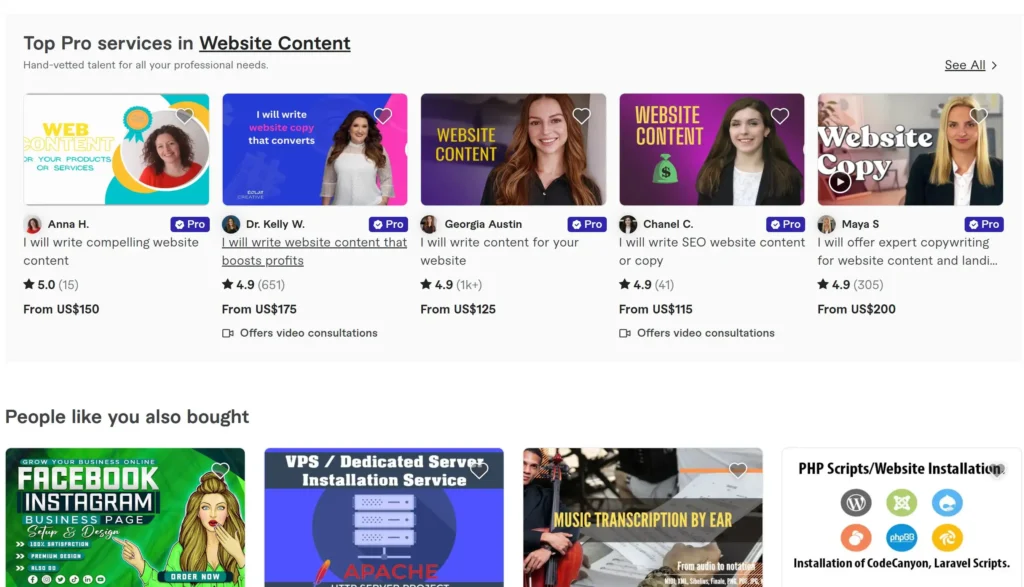The Art of Freelancing: How to Turn Your Skills into a Lucrative Online Career
Freelancing has emerged as a popular career choice, offering individuals flexibility, independence, and diverse project opportunities. This work model spans numerous industries, including writing, graphic design, web development, and marketing. Freelancers can collaborate with global clients remotely, often on a project-specific basis.
This arrangement allows for multiple simultaneous clients, diversifying income sources and broadening professional experience. The freelance ecosystem includes various online platforms and marketplaces that facilitate connections between freelancers and potential clients. These platforms serve as venues for skill showcasing, portfolio building, and opportunity discovery.
The growth of remote work and the gig economy has further propelled freelancing, making it increasingly accessible for individuals to secure work and establish successful careers independently. To navigate the freelancing landscape effectively, one must recognize available opportunities, assess competition, and develop strategies to stand out in a competitive market. The field is dynamic, with constant technological advancements, emerging trends, and new opportunities.
Freelancers must stay informed about industry developments, engage in professional networking, and continuously enhance their skills to maintain competitiveness. Success in freelancing requires a thorough understanding of the landscape and the ability to adapt to changes. By staying informed and flexible, freelancers can position themselves for long-term success in their chosen fields.
Key Takeaways
- Freelancing offers flexibility and independence, but also requires self-discipline and self-motivation.
- Identify your unique skills and strengths to stand out in the competitive freelance market.
- Building a strong online presence through a professional website and social media can attract potential clients.
- Understand the different freelance platforms and choose the one that best suits your skills and needs.
- Negotiate fair rates and contracts, and communicate clearly with clients to avoid misunderstandings.
- Effective time management and financial planning are crucial for success as a freelancer.
- Cultivate long-term client relationships by delivering high-quality work and maintaining open communication.
Identifying Your Marketable Skills

What Are Marketable Skills?
Marketable skills are the skills and expertise that you can offer to potential clients and that set you apart from the competition. These skills can include anything from writing and editing to graphic design, web development, social media marketing, and more.
Assessing Your Strengths and Experience
It’s important to take stock of your strengths and experience to determine which skills you can leverage to attract clients and build a successful freelance business. In addition to technical skills, soft skills such as communication, time management, and problem-solving are also highly valuable in the freelancing world. These skills can help you build strong client relationships, manage multiple projects effectively, and deliver high-quality work on time.
Continuously Developing Your Skills
Identifying your marketable skills involves assessing your strengths, experience, and interests to determine which services you can offer with confidence and expertise. Once you have identified your marketable skills, it’s important to continually develop and refine them to stay competitive in the market. This may involve taking courses, attending workshops, or seeking mentorship from more experienced professionals in your field.
By continuously honing your skills and staying up-to-date with industry trends, you can position yourself as a top choice for clients seeking high-quality freelance services.
Building a Strong Online Presence

In today’s digital age, having a strong online presence is essential for freelancers looking to attract clients and build a successful career. Your online presence serves as your professional identity and can help potential clients learn more about your skills, experience, and work style. Building a strong online presence involves creating a professional website or portfolio that showcases your work, as well as maintaining active profiles on professional networking sites such as LinkedIn.
Your online presence should also include a strong social media presence, where you can share your work, connect with potential clients, and network with other professionals in your industry. By engaging with your audience on social media platforms such as Twitter, Instagram, and Facebook, you can increase your visibility and attract new clients to your freelance business. In addition to showcasing your work and engaging with potential clients, building a strong online presence also involves maintaining a professional and consistent personal brand.
This includes using professional headshots, creating a cohesive visual identity across all of your online platforms, and crafting a compelling bio that highlights your skills and experience. By presenting yourself as a professional and reliable freelancer online, you can build trust with potential clients and position yourself for long-term success in the freelancing world.
Navigating the Freelance Platforms

Freelance platforms and marketplaces are valuable resources for freelancers looking to connect with potential clients and find new opportunities. These platforms provide a space for freelancers to create profiles, showcase their work, and bid on projects posted by clients from all over the world. Navigating the freelance platforms involves understanding how they work, creating a compelling profile that highlights your skills and experience, and effectively pitching your services to potential clients.
When navigating freelance platforms, it’s important to carefully read project descriptions and client requirements to ensure that you are a good fit for the job. Tailoring your proposals to each project and demonstrating an understanding of the client’s needs can help you stand out from the competition and increase your chances of winning new projects. Additionally, building a strong portfolio on these platforms can help showcase your skills and attract potential clients who are seeking high-quality freelance services.
It’s also important to carefully consider the terms and conditions of each freelance platform before signing up. Some platforms may charge fees or commissions on projects, while others may have specific rules or guidelines that freelancers must follow. By understanding the ins and outs of each platform, you can make informed decisions about where to focus your efforts and maximize your chances of finding new freelance opportunities.
Here are some of the top freelancing platforms:
| Upwork | A large and diverse platform where freelancers can offer services in various categories, such as writing, design, programming, and more. |
| Freelancer | Offers a wide range of project types and allows freelancers to bid on projects across many industries. |
| Fiverr | Focuses on offering freelance services at a set price, typically starting at $5, across creative, technical, and business categories. |
| PeoplePerHour | Primarily for freelancers offering hourly work, with a focus on web development, content creation, and design. |
| Guru | Allows freelancers to showcase their portfolios and connect with potential clients across multiple categories. |
Negotiating Rates and Contracts
Negotiating rates and contracts is an essential skill for freelancers looking to build a successful career. When working with clients, it’s important to establish clear expectations around payment terms, project scope, deadlines, and deliverables to ensure a smooth working relationship. Negotiating rates involves determining fair compensation for your services based on factors such as your experience, expertise, and the scope of the project.
When negotiating rates with clients, it’s important to be confident in the value of your work and communicate this effectively. This may involve providing examples of past work or testimonials from satisfied clients to demonstrate the quality of your services. Additionally, being transparent about your rates and any additional fees can help build trust with clients and set clear expectations from the outset.
In addition to negotiating rates, freelancers should also pay close attention to contract terms when working with clients. Contracts should outline project details, payment schedules, deadlines, revisions, and any other important terms or conditions. Reviewing contracts carefully and seeking legal advice if necessary can help protect freelancers from potential disputes or misunderstandings down the line.
Managing Your Time and Finances
Mastering Financial Management
In addition to time management, freelancers must also manage their finances effectively to ensure a stable income and financial security. This may involve setting aside funds for taxes, creating a budget for business expenses, invoicing clients promptly, and tracking income and expenses throughout the year. By staying on top of financial matters, freelancers can avoid cash flow issues and maintain a healthy financial foundation for their business.
Leveraging Technology for Efficiency
Freelancers should also consider investing in tools or software that can help streamline their time management and financial processes. This may include project management tools, accounting software, or invoicing platforms that can help automate administrative tasks and free up time for client work.
Achieving a Healthy Work-Life Balance
By leveraging technology to manage time and finances more efficiently, freelancers can focus on delivering high-quality work while maintaining a healthy work-life balance.
Cultivating Long-Term Client Relationships
Cultivating long-term client relationships is key to building a sustainable freelance business. Repeat clients not only provide ongoing work opportunities but also serve as valuable sources of referrals and testimonials that can help attract new clients to your business. Cultivating long-term client relationships involves delivering high-quality work consistently, communicating effectively throughout the project lifecycle, and going above and beyond to exceed client expectations.
Building trust with clients is essential for cultivating long-term relationships. This may involve being transparent about project timelines and deliverables, providing regular updates on project progress, and addressing any concerns or feedback promptly. By demonstrating reliability and professionalism in your client interactions, you can build trust over time and position yourself as a go-to freelancer for future projects.
In addition to delivering high-quality work and building trust with clients, cultivating long-term relationships also involves staying in touch with past clients and nurturing those connections over time. This may include sending personalized follow-up emails or messages expressing gratitude for past projects or checking in periodically to see if there are any new opportunities to collaborate. By staying top-of-mind with past clients, freelancers can increase their chances of receiving repeat business or referrals in the future.
In conclusion, understanding the freelancing landscape involves recognizing the diverse opportunities available in various industries and staying adaptable to industry developments. Identifying marketable skills is crucial for positioning oneself as a top choice for clients seeking high-quality freelance services. Building a strong online presence is essential for attracting clients and showcasing one’s professional identity.
Navigating freelance platforms requires understanding how they work and effectively pitching services to potential clients. Negotiating rates and contracts involves establishing clear expectations around payment terms and project scope. Managing time and finances is crucial for maintaining a successful freelance career while cultivating long-term client relationships is key to building a sustainable business.
By mastering these key aspects of freelancing, individuals can position themselves for long-term success in the ever-evolving world of freelance work.
FAQs
What is freelancing?
Freelancing is a type of work where individuals offer their skills or services to clients on a project basis, rather than being employed by a single company. Freelancers typically work independently and can take on multiple clients at the same time.
What are the benefits of freelancing?
Some benefits of freelancing include the ability to work from anywhere, flexible work hours, the potential for higher income, and the opportunity to work on a variety of projects with different clients.
What skills are in demand for freelancers?
In-demand skills for freelancers include graphic design, web development, writing and editing, digital marketing, social media management, and programming. Additionally, skills in areas such as virtual assistance, project management, and consulting are also highly sought after.
How can I turn my skills into a lucrative online career?
To turn your skills into a lucrative online career, you can start by identifying your strengths and the services you can offer. Then, create a professional online presence, build a portfolio of your work, and actively market yourself to potential clients. It’s also important to continuously improve your skills and stay updated on industry trends.
What are some popular platforms for finding freelance work?
Popular platforms for finding freelance work include Upwork, Freelancer, Fiverr, Toptal, and Guru. These platforms connect freelancers with clients seeking their services and provide a secure way to manage projects and payments.
What are some tips for success as a freelancer?
Some tips for success as a freelancer include setting clear goals, managing your time effectively, providing excellent customer service, networking with other professionals, and continuously learning and improving your skills. It’s also important to maintain a professional reputation and deliver high-quality work to build a strong client base.







